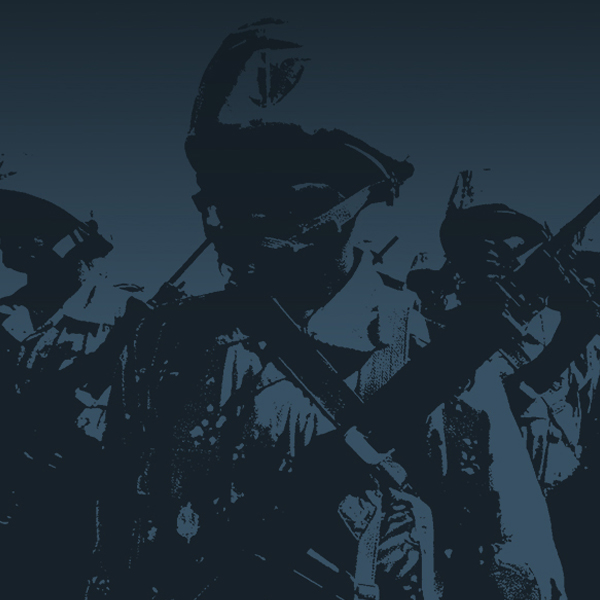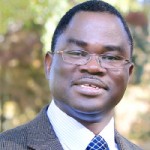The Nigerian militant group Boko Haram (literally meaning, ‘Western education is forbidden’) has been grabbing the headlines with brutal attacks on the Nigerian security forces, villages, churches, mosques, markets, and English-medium schools, as well as targeted murders of prominent Muslim clerics in northeastern Nigeria. The group gained international notoriety with the abduction of over 200 schoolgirls on 14 April 2014 at Chibok in Borno state.
Understanding who they are, what is their origin, and what they really stand for has been made difficult by various factors, including the climate of fear and hysteria that the attacks have created within Nigeria and the nature of Nigerian politics that breeds, and feeds on, rumours and conspiracy theories.
Origins
The origins of the group lie in a youth group at the Alhaji Muhammadu Ndimi mosque in Maiduguri in Borno state in northeastern Nigeria in the mid-1990s. Muhammad Yusuf assumed leadership of the group at that time. Yusuf was a student of Ja‘far Mahmud Adam, a prominent Ahlus Sunna cleric based in Kano, and for some time, was considered a potential successor to Adam.
Yusuf and Adam apparently fell out around 2002, and Yusuf began to withdraw from the Ndimi mosque to establish his own community around a new compound in Maiduguri from where he launched what became known as Boko Haram. At the height of public polemical exchanges between Yusuf and Adam, the latter was gunned down in 2007 during early morning prayers inside a mosque in Kano, apparently on the orders of Yusuf.
Yusuf continued to mobilise and consolidate his group until July 2009, when following a confrontation with police, the group’s compound and mosque in Maiduguri was razed to the ground. Yusuf himself was captured by the military and handed over to the police, who by all accounts, executed him. Several members were killed and some escaped into neighbouring Niger and Cameroun. Others went to Algeria and Somalia for training in militant camps. Abubakar Shekau, Yusuf’s second-in-command, assumed leadership, and from 2010 started a wave of brutal attacks apparently to avenge Yusuf’s death.
Foreign links
After Yusuf’s death, Al-Qa‘ida in the Islamic Maghreb (AQIM) issued a statement of condolence, offering Nigerian Muslims training and weapons to fight Christians.[1] In 2010 Shekau pledged allegiance to the leadership of al-Qa‘ida, al-Qa‘ida in the Maghreb, ISIS in Iraq, and al-Shabab in Somalia. However, it seems that groups like al-Qa‘ida and AQIM may be distancing themselves in the wake of the abduction of the school girls in April.
Hard evidence to support claims that Boko Haram receives funding from the Gulf or other foreign sources is elusive, but Adam and his organisation in Nigeria were certainly funded by an Islamic trust in London.[2]
Ideology
Boko Haram’s ideology has four main features:
- opposition to aspects of Western education;
- opposition to the modern secular state of Nigeria;
- the desire to establish an Islamic caliphate in line with the old Islamic empire of Borno which covered part of present-day northeastern Nigeria; and
- the use of violence (militant jihad) to achieve their goals.
In August 2014, Boko Haram declared an Islamic Caliphate around the town of Gwoza, in northeastern Nigeria.
The group’s ideology is rooted in northern Nigerian Islamic history. Joseph Kenny, a leading Roman Catholic specialist on Islam in Nigeria, describes Islam in northern Nigeria as ‘firmly reformist and separatist with regards to anything non-Islamic’.[3]
The term Boko is a Hausa word meaning fake, counterfeit, or inauthentic which came to be applied to secular-Western education within northern Nigeria long before Boko Haram. The suspicion of secular-Western education in northern Nigerian Muslim society is therefore deep-rooted and widespread. In the words of an anonymous Nigerian Muslim intellectual, ‘the genealogy of Boko Haram comes partly from the long-standing negative attitudes towards Western education among the Muslims of northern Nigeria, and partly from Salafi-Wahhabi trends in Nigeria originating from the preaching career of al-Shaykh Abubakar Mahmud Gumi’.[4]
The group’s position on secular education is more nuanced than is portrayed in the media:
- On the basis of an Islamic tradition, Yusuf pronounced aspects of non-Islamic knowledge that contradicts the Qur’an and Sunna haram (forbidden).
- Public schools are considered haram due to mixing of boys and girls.
The group also rejects the secular nature of Nigeria as based on kufr (unbelief), and calls for Muslims to undertake civil disobedience against the government, shun its services and institutions, and remove it from power by force, if need be, in order to replace it with an Islamic government. It views Western education and secularism as a ‘camouflaged conspiracy’ introduced into Islamic societies by Europeans to corrupt pure Islamic morals and Muslim religiosity.
Other historical influences
On these scores Boko Haram is not alone. Gumi, arguably the most dominant voice of northern Nigerian Islam in the last century, talked about the conspiratorial and destructive nature of the education system bequeathed by the British colonialists who, he said, built schools to teach destructive Western culture. Gumi also taught that the roots of Nigeria’s sociopolitical and economic woes lie deep in the concept of secularism.
Another factor contributing to the rise of Boko Haram is a jihadist legacy dating back to the early 19th century when Uthman dan Fodio led a Fulani insurgency against the then Hausa Muslim rulers on the grounds that the latter were not Islamic enough:
- Dan Fodio founded a theocracy, the Sokoto Caliphate, which came under British colonial rule from 1904 to 1960.
- Through indirect rule, the British maintained the old order and extended the rule of Muslim emirs over hitherto non-Muslim ethnic groups.
- Western scholars have romanticised the Caliphate as providing progressive, good Islamic governance, ignoring unspeakable brutalities, massive enslavement, and a far from cohesive caliphate on the eve of colonial rule.
- They have also joined the jihadists in branding Muslim scholars who opposed the jihad as venal and corrupt, endorsing the jihadi interpretation as representative of normative Islam and dismissing the non-ideological and non-militant face of Islam as ‘mixed Islam’, ‘black Islam’, and heterodox.
- Virtually all northern Nigerian Muslims have come to revere dan Fodio, while radical groups, including Boko Haram, are bent on turning the romanticised jihadist legacy into political programmes.[5]
Recent factors
In addition, the 1966 coup which resulted in the death of leading Muslim politicians such as the first Nigerian Prime Minister, Abubakar Tafawa Balewa, and the Premier of the Northern Region, Ahmadu Bello, was generally perceived by northern Nigerian Muslims as a southern Christian attack on Muslims and Islam. Successive military dictators kept the lid on intra-Muslim factionalism, which by the late 1970s turned into Christian-Muslim tensions over debates about the Federal Shari‘a Court of Appeal, strongly opposed by Christians.
The 1980s started with violent intra-Muslim conflicts, while the late 1980s marked the beginning of Christian-Muslim riots and violence, mostly started on campuses by student groups. These conflicts persisted and increased in intensity through the 1990s and 2000s—Nigeria’s ‘Decades of Blood’, with horrific acts of violence committed by all sides.
In the early 2000s, Salafi-Wahhabi leaders, including Yusuf and Adam, were at the forefront of the agitation for comprehensive implementation of shari‘a in northern Nigerian states. The shari‘a project was an abysmal failure due to selective justice, corruption, and abuse of the system, which led to loss of public confidence and disillusionment among the leadership of the activist groups. Adam himself resigned from his position on the board entrusted with the implementation of Islamic morality in public life in Kano State. Disillusionment with this failure contributed to the rise of extremist groups like Boko Haram.
Current factors
Boko Haram is able to exploit several current problems for the purposes of both recruitment and operations, including:
- weak local, state, and federal institutions;
- widening gap between rich and poor;
- a climate of rumours and conspiracy theories;
- the tendency of state and federal officials to deny or downplay the scale of atrocities;
- incompetent and unprofessional security forces;
- rampant corruption and collusion on the part of the police;
- loss of faith in the justice system; and
- a culture of vigilantism and impunity.
The initial success of the group was also helped by the patronage of local politicians and prominent businessmen.
Implications
All of these factors served as fuel (rather than root causes) for the rise of Boko Haram, providing fertile soil for the seeds of religious bigotry to take root. Addressing them will help drain the pus but will not necessarily deal with the causes of the infection.
Suggested responses
Christians should resist the temptation of stereotyping and problematising Islam with arguments that groups like Boko Haram represent the true face of Islam:
- Islamic legal texts are clear that the declaration of jihad is the prerogative of a legitimate ruler of an Islamic state.
- Boko Haram’s tactics of declaring fellow Muslims unbelievers and murdering them were roundly repudiated in the seventh century. The Kharijites who espoused such beliefs were ruthlessly suppressed as heretical terrorists.
- Muslim leaders across the world have denounced Boko Haram as criminals and terrorists.
However, more importantly, the narrative that Islam or the Qur’an or Muhammad is the problem is futile and disempowering. If these are the problems, what is the solution? To proscribe Islam as a religion and ban the use of the Qur’an?
Stereotyping Muslims and problematising Islam will only alienate Muslims and create an ‘us versus them’ situation, which is exactly what the jihadists preach and are seeking to achieve!
The pressure on the Nigerian church in general and Christians in northern Nigeria in particular is considerable. In the short term, evangelical movements like Lausanne should seek collaboration with local and international ecumenical and interfaith groups in an effort to end the violence and to build bridges across communities.
The cycle of violence has spread trauma, fear, and hatred among large portions of northern Nigerian Christians who see Islam as an existential threat. Sections of the Christian leadership and youth have been radicalised, with many resorting to violence and openly calling for retaliatory attacks.
Many Christians in northern Nigeria, and the Pentecostal/charismatic stream of the Nigerian church in particular, would benefit from resources for pastoral and professional care and counselling. They would also benefit from deeper theological reflections in the light of a widespread prosperity gospel that offers very little in terms of dealing with suffering, persecution, and Christian presence and witness in conflict situations.[6]
Lastly, ‘de-secularisation’ groups like Boko Haram may be calling the evangelical communion to a long overdue conversation about the effects of the secularisation of society and culture on religious commitment. In other words, there needs to be a serious conversation about what it means to be a citizen and a believer in a pluralistic nation state governed by secular democracy.
Endnotes
- ‘North Africa Qaeda offers to Help Nigerian Muslims’, Reuters, 1 February 2010, accessed 1 October 2014, http://www.reuters.com/article/2010/02/01/ozatp-nigeria-qaeda-muslims-idAFJOE6100EE20100201.
- Andrea Brigaglia, ‘Ja‘far Mahmoud Adam, Mohammed Yusuf and Al-Muntada Islamic Trust: Reflections on the Genesis of the Boko Haram Phenomenon in Nigeria’, Annual Review of Islam in Africa 11 (2012): 35-44.
- Joseph Kenny, ‘The Spread of Islam in Nigeria: A Historical Survey’, accessed 1 October 2014, http://www.dhspriory.org/kenny/Sist.htm.
- Anonymous, ‘The Popular Discourses of Salafi Radicalism and Salafi Counter-radicalism in Nigeria: A Case Study of Boko Haram’, Journal of Religion in Africa 42, 2 (2012): 120.
- John Azumah, The Legacy of Arab-Islam in Africa: A Quest for Inter-Religious Dialogue (Oxford: Oneworld Publications, 2001), 7-18.
- Editor’s Note: See article by Kwabena Asamoah-Gyadu entitled ‘The Prosperity Gospel and Its Challenge to Mission in Our Time’ in the July 2014 issue of Lausanne Global Analysis.

